Looking to get beyond the ‘clicking by numbers’ approach to landscape photography? Geoff Harris considers the limitations of checklist photography, and suggests some solutions…
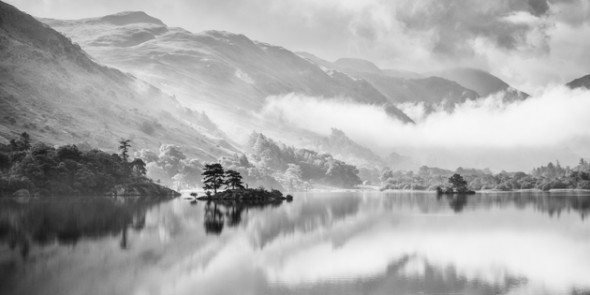
MARK LITTLEJOHN – Masters of Vision
On any given Sunday the hills are alive with the sound of shutter releases clicking (with the mirror locked up, naturally) as landscape photographers up and down the country do their stuff. From the Scottish highlands to the south coast, people get up at stupid o’clock in all sorts of weather to crouch over tripods, painstakingly attaching filters and tut-tutting at histograms. You’ve got to admire them; this is physically and mentally demanding photography, involving much more than a nice country walk with the camera.
So given all the effort and expensive gear involved, why do many landscape images look so similar – and is this a bad thing?
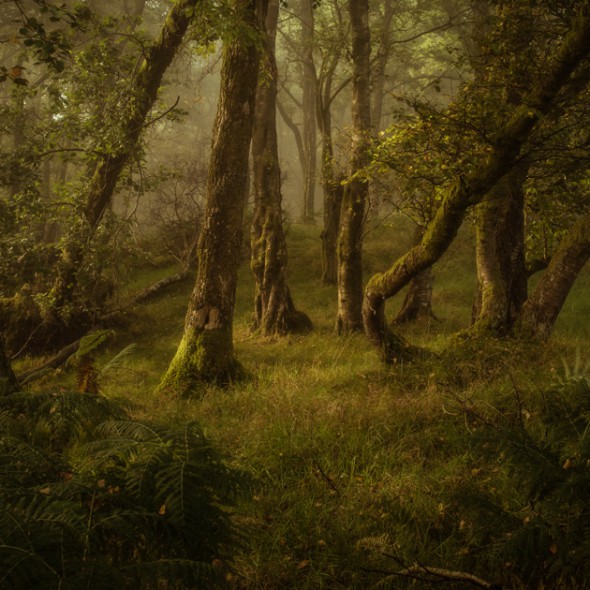
MARK LITTLEJOHN – Masters of Vision
It seems as if many enthusiast photographers (and some of the more predictable professionals) have internalised a landscape photography checklist which they feel they always need to follow. First, they head to the coast, or popular beauty spots. Then there needs to be some of kind of rocks or boulders in the foreground to lead in the eye, then the depth of field needs to stretch to infinity.
This is often balanced by water and sea shot at long exposures, so it looks glassy or milky, and heavily filtered skies that look so apocalyptic, you expect the accusing finger of God to point down through the clouds. Some of these scenes wouldn’t look out of place on the cover of The Watchtower, warning non-believers of their imminent immolation. A layer of HDR varnish is sometimes applied by cruder exponents of this style, or the golden hour colours ‘lysergically’ cranked up in software.
Transcending technique
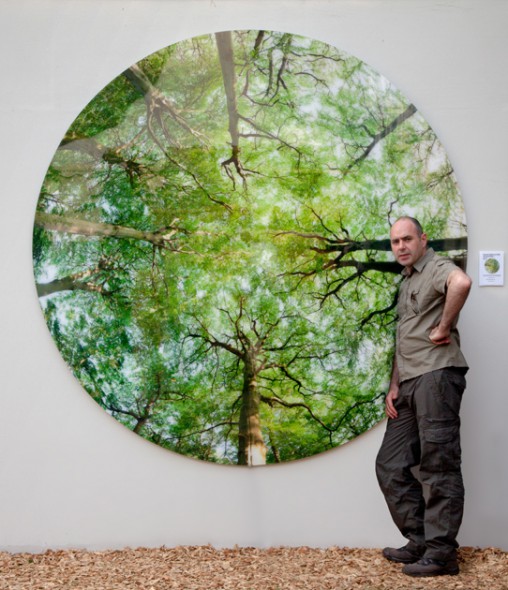
DAVID ANTHONY HALL – Masters of Vision
Now, while I may sound glib here, I am the first to admit that doing all of the above properly is not easy, so hats off to people who do it well. I worry, however, that some people mistake this technical box ticking as an end in itself, rather than just a means to self expression – or to put it another way, capturing your emotional response to the scene in front of you, rather than just showing off your technical proficiency. It’s great that photographers make the effort to work out hyper-focal distance or the arcana of filters, so long as they don’t get stuck on a self-imposed creative plateau.
“If we are entering competitions or trying to get our work published, then originality is key; probably the single most important aspect. As more photographs are made, originality becomes more elusive, but there are myriad permutations; our creativity remains eternal.”
The big problem is this: if the ‘process’ becomes an end in itself, your images end up looking like those of all the other people who use those processes. Spend some time on camera-user groups on Facebook, and you’ll see what I mean – a lot of well executed but excruciatingly predictable images that could have been taken by a robot.
Is this a bad thing? Does it really matter? I suppose it depends on your intentions and goals. If all you want to do is reach a certain technical level, as it gives you nice prints for the dining room and pleases the pundits in your camera club, that’s fine. To make progress in major competitions, however, or start to get noticed by the media (social and traditional), you need to start to make the jump from displaying your mastery of popular landscape techniques to proper self expression.
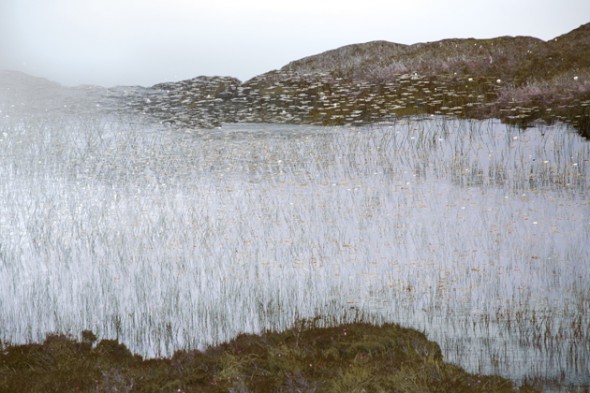
VALDA BAILEY – Masters of Vision
Once you’re comfortable with a lot of the conventions and rules, try to subvert them and creatively bend them. Or think about this way: does this toolbox of popular techniques really allow me to capture how I am feeling about the scene in front of me, or even how I MYSELF am feeling on this day? Start to ask yourself these questions and your photography is likely to get more interesting.
Never give up on creativity
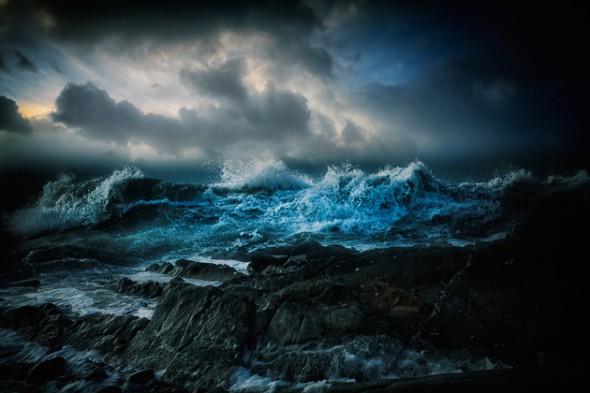
DAVID BAKER – Masters of Vision
This all sounds quite esoteric and elusive, but there is plenty of inspiration at hand, and here are two examples. Thames and Hudson recently published a fascinating book called Landmark: The Fields of Landscape Photography. Some of their work in there will send traditionalists apoplectic with rage, but it’s a salutary reminder that landscape photography doesn’t just need to be about capturing conventional notions of the beautiful and picturesque (this is something that the art photography world realised a long time ago, for better or worse).
There’s also a great exhibition in Southwell Minster, Nottinghamshire, called Masters of Vision, showing until August 23rd – You may want to get a move on. Masters of Vision features some really interesting landscape photographers, including Pete Bridgwood, Vanda Bailey and Mark Littlejohn, alongside more conventional approaches. Mark recently won the Landscape Photographer of the Year award with a beautifully executed but quite controversial image of Glencoe in the drizzle. I was thrilled when Mark’s image won, as it’s refreshingly different.
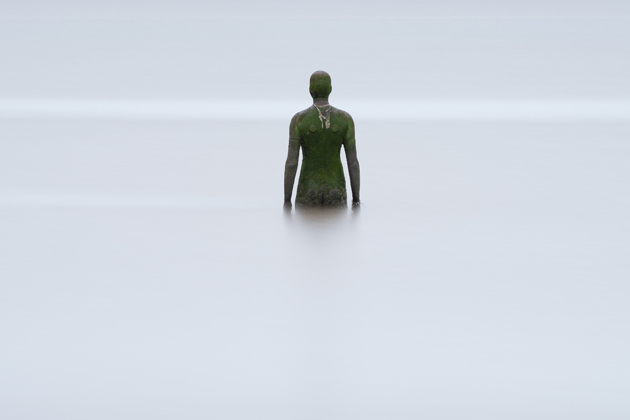
PETE BRIDGWOOD – Masters of Vision
I’d like to leave the last words to Pete Bridgwood, another of the exhibitors at Southwell, who has some interesting reflections on this thorny topic of originality in landscape photography.
“As our photography advances and we become more capable, then our own ‘originality’ increasingly conforms with the accepted view, because we’ve tried all the more popular techniques and photographed many of the popular locations as part of our learning process. If we are entering competitions or trying to get our work published, then originality is key; probably the single most important aspect.
As more photographs are made, originality becomes more elusive, but there are myriad permutations; our creativity remains eternal.”
How do you feel about Landscape Photography trends? Tell us what you think in the Comments section below.
About the Author
Geoff is an experienced photography journalist and recently stepped down as editor of Digital Camera, the UK’s best-selling photography magazine. He now writes for a range of publications. Geoff is a keen travel and portrait photographer, and a Licentiate of the Royal Photographic Society.

